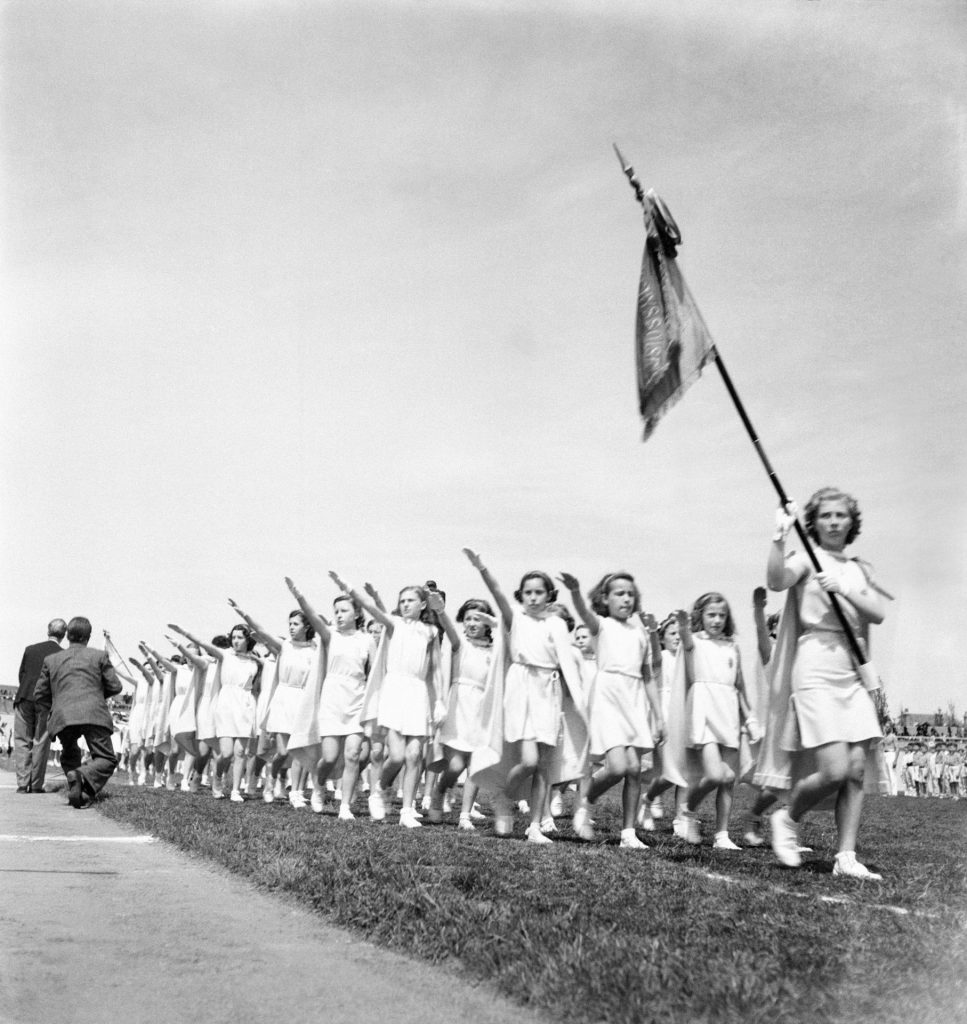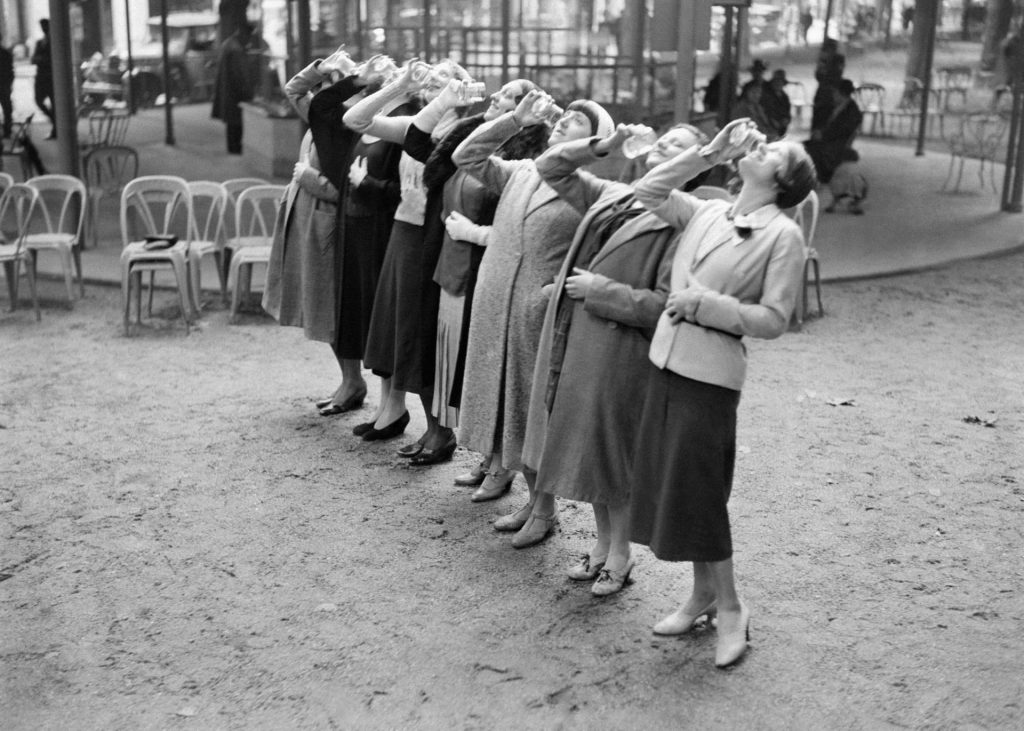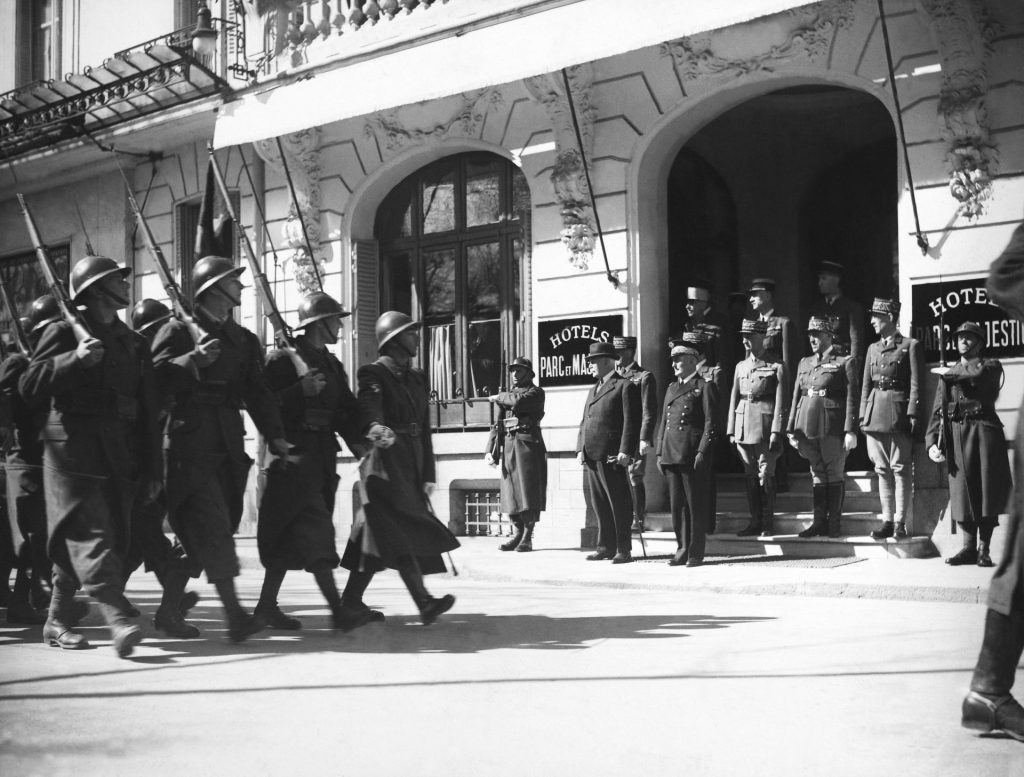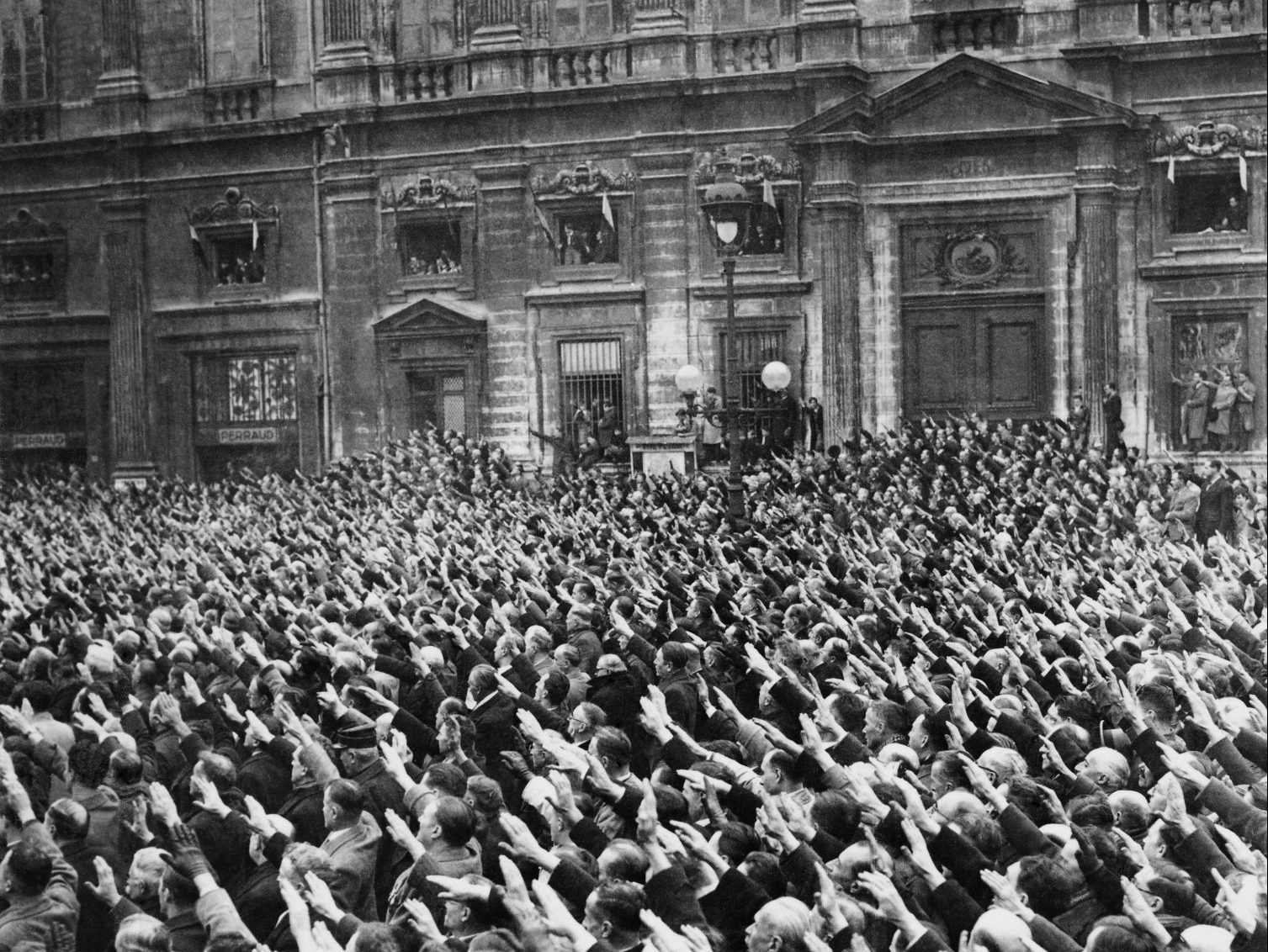In the closing sequence of the great movie Casablanca, the amoral French police chief Captain Louis Renault finally chooses sides. After delivering his celebrated line, “Round up the usual suspects”, Renault (Claude Rains) takes a gulp of mineral water. Noticing that the label on the bottle reads “Eau de Vichy” (‘Vichy water’), he hurls it into a waste-paper basket.
After the Second World War, it is often claimed that Vichy, the town, was also rejected. Almost all European spa towns declined in the late 20th and early 21st centuries. Vichy – capital of the pro-Nazi “Etat Francais” from 1940-43 – declined more than most.
The truth is a little more complicated. The small town in central France, once a favoured watering place of royalty and the super-rich, was blighted not by one war but by two.
In the 1950s Vichy recovered briefly from its association with defeat and collaboration. It became a popular playground for rich French-Algerians and other colonials. After the Algerian war and Algerian independence, its popularity slumped once again.
Vichy, which has been known since Roman times for the curative effects of its water, once had more than 100 hotels. It now has 25. As recently as the 1960s, Vichy had a population of 34,000 and more than 25,000 people a year came to take a cure. Vichy now has 25,000 people and only 5,000 “curistes” a year. It counts among the poorest 12% of communes in France, largely because it has many retired people on limited means.

But hope springs eternal in the world of thermal springs. Vichy, with ten other European spa towns, has recently been given ‘world heritage’ status by Unesco, in recognition of its historical and cultural significance. (The others were: Bath, Baden bei Wien in Austria, Spa in Belgium, Bad Ems, Bad Kissingen and Baden-Baden in Germany, Montecatini Terme in Italy, and the Czech Republic’s Frantiskovy Lázne, Karlovy Vary and Mariánské Lázne.)
So can Unesco cure Vichy? The town has already created something of a new niche for itself as an inland holiday resort where people of relatively modest means can have a pleasant time surrounded by fading symbols of luxury. It now hopes that the Unesco world heritage label will restore some of its past glories.
The town’s mayor, Frédéric Aguilera, says that Unesco recognition is a “historic” moment – a “formidable lever” for reminding the world of a town which was once “at the heart of Europe” and “led the way in creating modern tourism”.
But is the world – and France first of all – ready to disassociate Vichy, the town, from Vichy, the régime? Mayor Aguilera recently wrote a letter of complaint to Emmanuel Macron for using the word “Vichy” – as almost all French people still do – as a short-hand for the pro-Nazi government of Philippe Pétain.
“Vichy never chose to be capital of the Etat Francais,” he wrote to the president. “It submitted through the period of occupation like every other commune in France. Les Vichyssois (the people of Vichy) still suffer every day from the abusive use of their town’s name.”
Is that really so? The most recent historian of Vichy, Audrey Mallet, a Paris-based academic who was born in the town, says local politicians exaggerate the damage that “Vichy” inflicted on Vichy.
“All European spa towns have struggled as their old clientele has sought more exotic destinations,” she said. “Vichy actually boomed for a while post-war because of its pied-noir (French-Algerian) visitors. The town was later shunned by some people maybe but younger French generations are either interested in the history or oblivious to it.”

So what is Vichy like, 77 years after it ceased to be the smallest and most short-lived capital of any large country? I spent some time there this summer for the first time since the mid-1970s.
I remembered, from 40 years ago, an austere, moribund town in which old ladies walked tiny dogs through empty streets beside large, empty hotels. I found this time a pleasant, cheerful, quiet, leafy sort of place in which young families wandered the streets looking for something to do (including many middle class families).
My wife (visiting for the first time) said that Vichy was part- Bayswater, part-Buxton: imposing, white stucco buildings which have seen better times, surrounding a pleasant park with a 700 metres long covered walkway.
After the French-Algerian visitors dried up, Vichy briefly recreated itself in the 1970s as a downmarket, health-cure centre, whose visitors were funded by the French health service. When “Le Sécu” could no longer afford to fund pay for people to take the waters, Vichy re-invented itself again, with some modest success, as a centre for inland water sports.
The town forms a narrow crescent beside a dammed stretch of the river Allier, forming a pretty, artificial lake. It still has its “Hall des Sources” (hall of springs) where people can sample the salty but pleasant spring water for free.
It still has a casino and a theatre and opera house (where the French parliament sat and rubber-stamped Pétain and Nazi edicts from 1940 to 1944).
Vichy’s great, palace hotels, in a row beside the central park, were among the grandest in the word in the early 20th century. In 1940, they became the ministries of the Vichy régime. The Hotel Le Parc became the home and offices of Philippe Pétain himself. It has now been converted into flats and shops. Pétain’s living quarters on the third floor, bought by a sympathiser, are packed with Vichy memorabilia. The curtains are permanently closed.
Only one of these once-great hotels – the Aletti Palace – is still a hotel. All the others have been converted into apartments.
We stayed at the Aletti Palace for 100 euros a night – about what you would pay for a modest hotel in any other small, French town. From 1940, the Aletti was the Ministry of War and the Ministry of Franco-German Economic Relations.
The hotel evidently had a make-over in the 1970s. Nothing much has happened since. It is a perfect place to stay for a cheapish glimpse of life in a grand hotel, at a fraction of what you would pay in Paris or Nice.
The great hotels were one reason why Pétain chose Vichy as his capital. Their wealthy, international clientele meant that they had excellent telephone equipment (for 1940).

But he also had other, more political reasons to choose Vichy. Paris and Bordeaux were in the German-occupied zone in northern France and along the Atlantic coast. Larger southern cities – Marseille, Montpellier and Toulouse – were considered but rejected by Pétain as too working class and too left wing.
The historian Audret Mallet (author of Vichy contre Vichy: une capitale sans mémoire) says the town tried for years to ignore its recent past. “This was a mistake,” she said. “Many people are fascinated by the war. Other towns faced up to the past. Vichy turned its back on it.”
That is now changing. A new museum will open in 2025 which will explore the town’s origins and rapid development from the 1860s – but also its dark period as capital of a French government that passed anti-Semitic laws and arrested thousands of Jews for deportation to Nazi camps.
The mayor Mr Aguilera recently decided to rename the square in front of the Opera House the Parvis Simone Veil, after the French Auschwitz survivor who went on to become health minister and the first president of the directly elected European parliament.
“I’m part of a generation which is prepared to face up to what happened here,” he says. “But we don’t want to be defined forever by those four years.”
The kind of aristocratic or wealthy tourism which characterised Vichy’s heyday in the late 19th and early 20th centuries will never return. Much of the town’s grandiose infrastructure – casino, opera, palace hotels – belongs to that different age.
All is not lost. Other spa towns, the German ones especially, have recreated themselves as ‘wellness’ and sports centres which attract youngish, well-heeled people obsessed with health and fitness.
Vichy, with its man-made water sports lake on the river Allier, is well-placed to do the same. The rights to exploit the Vichy spring waters, owned by the French state since the 16th century, have recently been sold back to the town for a modest sum. New developments and initiatives are promised.
Meanwhile, a different kind of effort to ‘rehabilitate’ Vichy is also underway – a revisionist attempt to suggest that the Pétain regime was not-so-bad-as-all-that.
‘Vichy’ may even become an issue in the French presidential elections next April. The far right French essayist and TV pundit, Eric Zemmour, a frequent Vichy-Pétain apologist, is widely expected to run in the first round to the right of Marine Le Pen. The word ‘Vichy’ could be plastered all over French and foreign media next year – but not in a way that Mr Aguilera, the town’s mayor, would welcome.
THE COLLABORATOR STATE
Following the fall of France in 1940, the government in Vichy was put in control of the unoccupied southeastern two-fifths of the country, as well as its overseas territories. The rest remained under German military occupation. Following the Allied landings in North Africa in 1942, the Germans occupied the whole of France, though the Vichy regime was left in place.
The extent to which the regime led by Marshal Pétain was merely a German puppet or a state with its own agenda – pursued without pressure from Berlin – remains a subject for historical debate.
Its precise policies changed according to the fortunes of the war and there were actually five governments during the tenure of the Vichy regime. Yet it was authoritarian and anti-Semitic in nature throughout, and collaborated with the Nazis in the persecution of its Jews, with thousands deported to its camps in the east.
Despite heavy pressure, the French government at Vichy never joined the Axis powers and even remained formally at war with Germany.
After the war, Pétain was put on trial for treason and sentenced to death, but that was commuted to life imprisonment by Charles de Gaulle. Another leading figure, Pierre Laval, was executed, however.
Warning: Illegal string offset 'link_id' in /mnt/storage/stage/www/wp-includes/bookmark.php on line 357
Notice: Trying to get property 'link_id' of non-object in /mnt/storage/stage/www/wp-includes/bookmark.php on line 37







